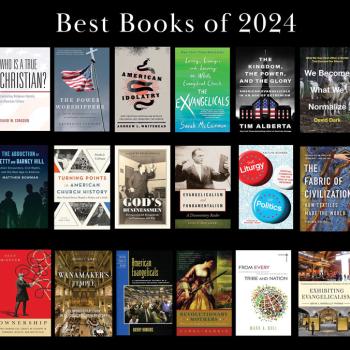In response to one of my recent newsletters, a friend and former student asked, from the perspective of a Ph.D. student, “With seminar papers, conference papers, book reviews, and journal articles, there is a lot to think about. How to prioritize these? How to find time to work on long-term projects when the daily tasks of work press in?” [My newsletters only go to subscribers, if you haven’t signed up you can do so here.] I think these are questions that all writers and professors (prospective or established) must ask. Here are some ways to think about the value of different kinds of writing and presenting:
Conference papers: these are excellent opportunities for graduate students and professors to establish contacts, float new ideas, and engage conversations happening in their field. In the worst case, they do minimal damage if your ideas are really flaky, because unless someone live-tweets or blogs about your paper, its effects are largely limited to those hearing it. This is also the downside of conference papers, however, as they deliver relatively little lasting value in tangible forms by which job and tenure candidates are often measured. They also require a lot of time with preparation and travel, and money, too, unless you have access to a travel budget. My recommendation to junior scholars is to present some papers, but not too many. I suspect that many a tenure-track candidate has lost valuable time by packing their schedules with conference papers, while their articles or (often most important) book languished. If you can easily transform a conference paper into an article or dissertation/book chapter, so much the better.
Journal articles: these are important for junior scholars toward the end of their graduate career, and at the beginning of their work as a professor, in order to become established as a “figure” in one’s field. I don’t think graduate students need to obsess about producing articles, but if you can have one or two strong articles published by the time you go on the job market, it will help with academic jobs that have some publishing requirements for tenure. Some established scholars keep on publishing important articles, and some personalities seem drawn to article-length writing rather than books. The main downside to academic journals, however, is that they typically have rather small audiences of other specialists, and they often are only available to journal subscribers (or those with institutional access). I also find that journal articles can be among the most time-inefficient kinds of writing, with relatively laborious and time-consuming review processes. These can ideally produce highly rigorous articles; at worst they can take up a lot of time for an article very few people end up reading. (And wouldn’t we all like to have more readers?) 
Books: for historians, these are typically the defining contributions of one’s scholarly career, as well as the cornerstone of one’s tenure case at research-oriented institutions. They also tend to gain a wider readership than journal articles, although some are priced so high that the number of individual buyers is quite low. Unfortunately, it has gotten increasingly difficult to obtain book contracts as academic presses see budgets shrink – like so much of the publishing industry, academic publishing is in “flux,” to put it nicely. Nevertheless, articles don’t typically get reviewed or blogged about; books do. Books are often also connected to invitations to give individual lectures and to participate in other high profile events. I advise doctoral students to think of their dissertation as the first draft of their book. (No 2000-page dissertations, for goodness sake!) Obviously, books require years of long, sustained attention, from the first glimmers of a concept to the final published product, and they typically require some sort of institutional support, in the form of reasonable teaching loads, if nothing else.
My former student’s second question above suggests a huge issue for all book writers – how to keep at the longer-form projects when daily demands press in? I’ll hold off on a full answer to that for a later post or newsletter, but for the time being I will just say that it is a daily battle. Every single writer faces it. Successful book writers are the ones who win the daily battle more often than not.
















